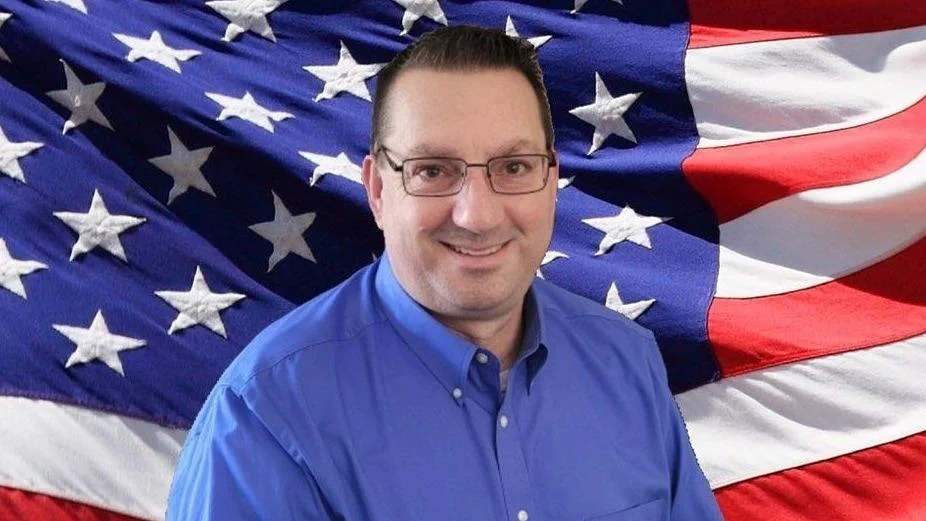Dave Maxey, Wisconsin State Representative for 83rd District | Facebook
Dave Maxey, Wisconsin State Representative for 83rd District | Facebook
According to the Wisconsin State Legislature's official website, the bill was described as follows: "required ratio of journeyworkers to apprentices in apprenticeship programs and contracts".
The following is our breakdown, based on the actual bill text, and may include interpretation to clarify its provisions.
In essence, this bill amends existing Wisconsin statutes to change the required ratio of journeyworkers to apprentices in apprenticeship programs and contracts. Previously, there was a requirement of having no more than one apprentice per journeyworker. The bill now allows for a ratio of one journeyworker to two apprentices. This change means that apprenticeship programs can have a more flexible structure, potentially increasing the number of apprentices who can be trained under each journeyworker. The act's applicability to apprenticeship contracts governed by collective bargaining agreements will take effect when those agreements expire or are extended, modified, or renewed.
The bill was co-authored by Senator Chris Kapenga (Republican-33rd District), Representative David Armstrong (Republican-67th District), Representative Lindee Rae Brill (Republican-27th District), Representative Robert Brooks (Republican-59th District), Representative Barbara Dittrich (Republican-99th District). It was co-sponsored by Senator Rachael Cabral-Guevara (Republican-19th District), Senator Dan Feyen (Republican-20th District), and Senator Rob Hutton (Republican-5th District), along 18 other co-sponsors.
Dave Maxey has co-authored or authored another 78 bills since the beginning of the 2025 session, with none of them being enacted.
Maxey graduated from Waukesha County Technical College in 2002 with an AA.
Maxey, a Republican, was elected to the Wisconsin State Assembly in 2025 to represent the state's 83rd Assembly district, replacing previous state representative Nik Rettinger.
In Wisconsin, the legislative process starts when a senator, constituent, group, or agency proposes an idea for a bill. After drafting, the bill is introduced, numbered, and referred to a committee for review and public input. If approved, it moves through three readings and votes in both the Senate and Assembly. Once both chambers pass the same version, the bill goes to the governor, who can sign it, veto it, or let it become law without a signature. Only a small share of bills introduced each session ultimately become law. You can learn more about the Wisconsin legislative process here.
| Bill Number | Date Introduced | Short Description |
|---|---|---|
| AB241 | 05/02/2025 | Required ratio of journeyworkers to apprentices in apprenticeship programs and contracts |
| AB235 | 05/02/2025 | Workforce literacy grant program. (FE) |
| AB175 | 04/15/2025 | Requiring periodic inspections of parking structures |
| AB166 | 04/08/2025 | Academic and career planning services provided to pupils and requiring the reporting of certain data on college student costs and outcomes. (FE) |
| AB165 | 04/08/2025 | Local guaranteed income programs |
| AB160 | 04/02/2025 | Eliminating daylight saving time in Wisconsin |
| AB157 | 04/02/2025 | Prohibiting filing or recording contracts for services or materials that do not improve real estate and providing a penalty. (FE) |
| AB146 | 03/17/2025 | Requests for information from employers about unemployment insurance claims |
| AB143 | 03/17/2025 | Allowing an unlicensed person to use a motor vehicle and providing a penalty |
| AB81 | 02/28/2025 | Excluding expenditures funded by referenda from shared costs for the purpose of determining equalization aid for school districts. (FE) |
| AB70 | 02/24/2025 | A disclaimer of parental rights and payments allowed in connection with an adoption |
| AB47 | 02/17/2025 | Tuition and fee remission for certain veterans and their dependents enrolled in the University of Wisconsin System or a technical college. (FE) |

 Alerts Sign-up
Alerts Sign-up